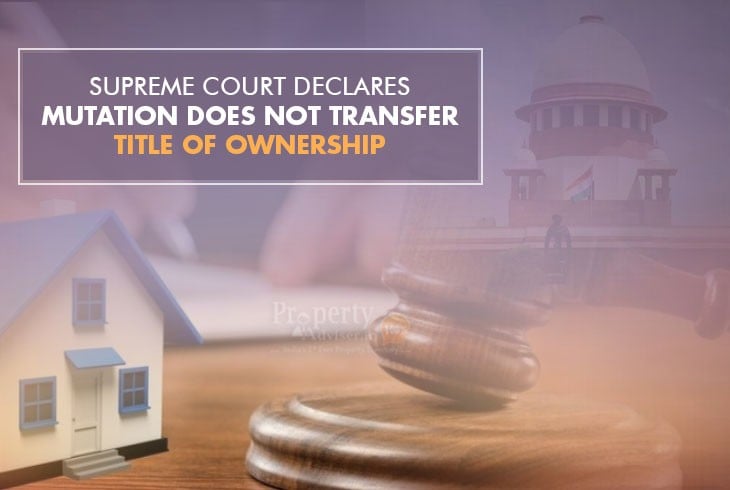Alleviating all doubts regarding property title transfer, the Supreme Court clarified that mutation does not give title to property. It also confirmed that a land mutation in revenue records does not create or destroy the title over any property. It only allows the person to pay the land revenue in whose name the mutation has been made.
What is Meant by Mutation?
Mutation means change or replacement in revenue records or municipal records in favour of an individual or group of persons as the owner(s) of the property.
Why is it Important to Mutate Property?
Mutation is important in assessing an individual as owner in the revenue or municipal records, although it is not a proof of ownership of property on its own. It can be regarded as a legal basis for deciding ownership, in accordance with other documents. It also helps to pay property taxes, etc.
The Supreme Court upheld the conventional legal stand that the entry of mutation does not transmit property title. It must be separately established in a specific legal action. The Court has also confirmed that mutation was never a procedure for permitting title transfer. It is just a title acknowledgment when seen along with other title documents.
Mutation Process
Mutation is the replacement process of an existing property owner with a new owner in the revenue department . It is applicable as a proof of ownership of mutation and it can serve as a tax record. The fact that the change of the revenue records does not confer titles on the property is a proven legal position. Only the person whose name changes can pay the revenue or property tax.
Even as property registration is mandatory in India, mutation is not legally enforceable. Mutation is, nonetheless, important, since it guarantees that all records related to a property are updated with the government. This enables an owner, without doubt, to sell his property. Although registration gives you the title, mutations are required to update your sale or property records.
By: Shailaja K












